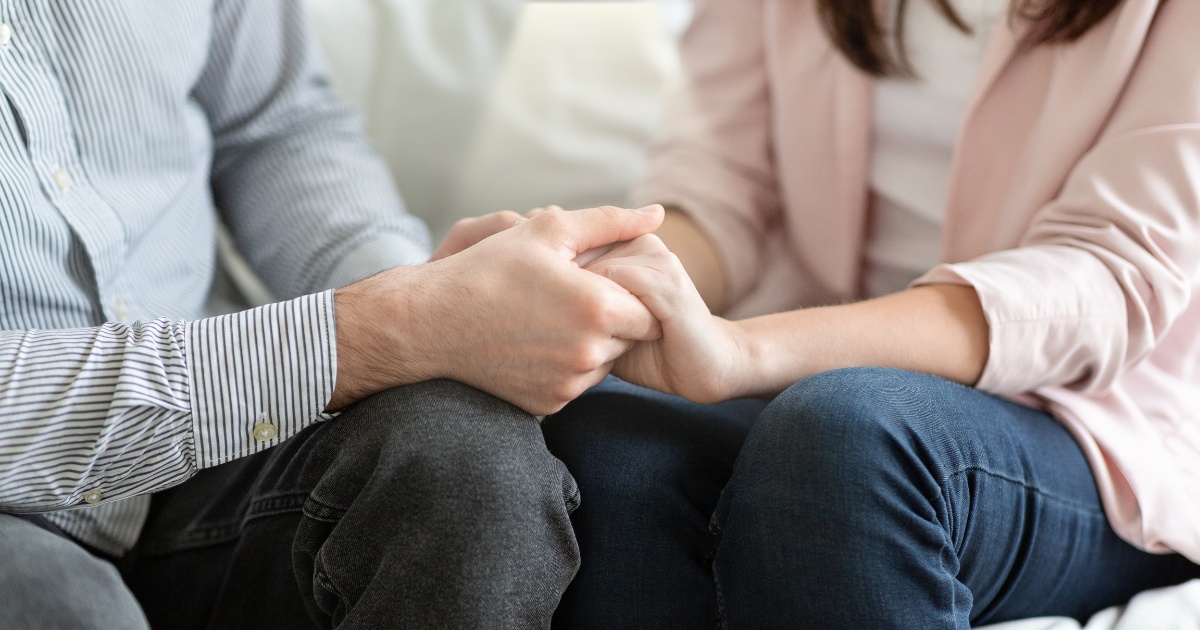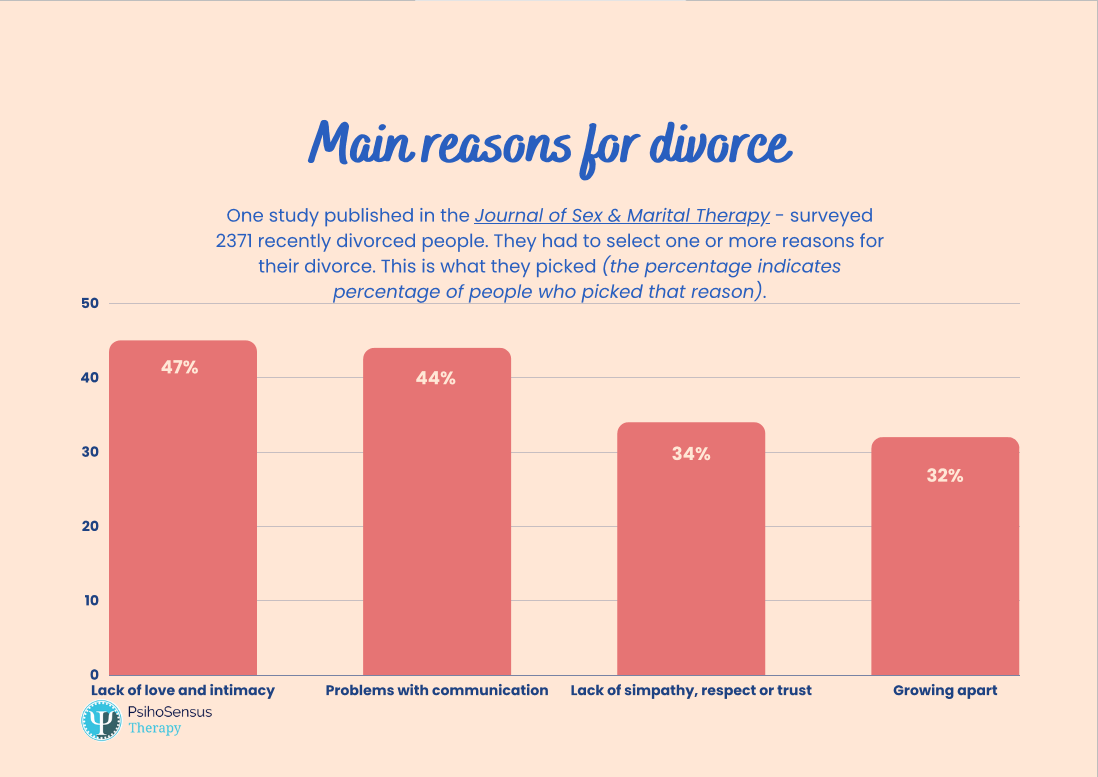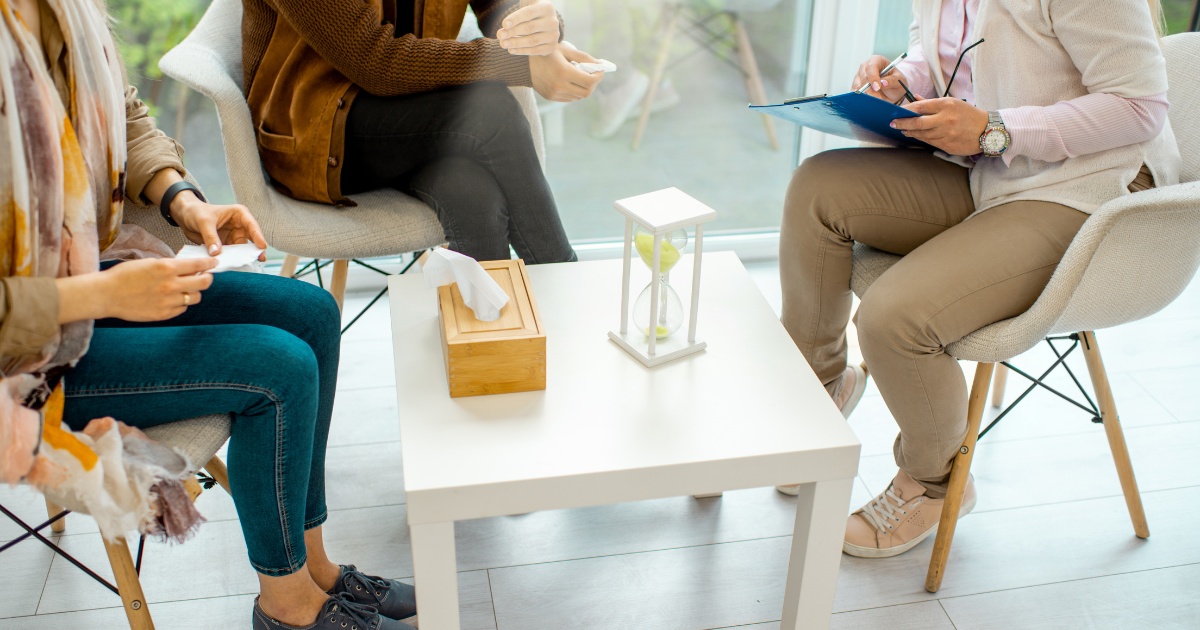Written by Valentina Dragomir, Psychotherapist |

Are you having relationship problems? While no love relationship or marriage is without its challenges, it can be difficult to find peace and harmony especially when these problems have been around for a long time and are getting worse. But there is hope! With couples psychotherapy (or couples therapy) you can, together with your partner (or spouse), make it easier to overcome these problems in your relationship.
Couples therapy may be just what you and your partner or spouse need to help your marriage or relationship become a happy couple.
In this article we will discuss the basics of couples relationship psychotherapy, explaining who might benefit from it and how it works. Given that so many studies (see the references below) show that couple psychotherapy is really helpful and very few couples access it, unfortunately, I want to share with couples some essential information about couple psychotherapy and how helpful it is.
There are many couples in distress, but not all of them fall apart. Divorce rates have risen especially after the pandemic, when relationships have been constrained by isolation. The divorce rate in 1990 was 16%, and by the end of 2020 it had reached 28.5% . I believe that all couples experiencing difficulties should seek help as soon as possible if they feel their romantic relationship is at an impasse.
What is couples psychotherapy and what are its benefits?
Couples psychotherapy is a type of psychotherapy that focuses on the connection between the two partners in the relationship. Couples psychotherapy helps married and unmarried couples resolve their conflicts and build stronger relationships. By focusing on the relationship, rather than the person, couples therapy involves the couple working together for the good of the relationship.

Couples psychotherapy is an effective tool for resolving conflict in a healthy way. The couple therapy session is the place and time dedicated to the couple’s relationship where partners can learn strategies for managing anger outbursts, identifying emotions and thoughts that lead to conflict and finding effective solutions to their problems that satisfy both partners.
Couples psychotherapy can be particularly helpful for couples who have problems with communication, trust in their partner, unmet needs, recurring problems, problems with harmful behaviors, or various fears such as fear of abandonment. Through psychotherapy, couples can learn how to improve their communication skills, gain a deeper insight into each other’s perspective and behavior, and build a stronger emotional connection.
Couples therapy also helps to rebuild a sense of security in the relationship and a secure attachment between partners. Support is often needed for partners who have anxious attachment or avoidant attachment to help them develop a sense of confidence and security in the relationship.
Some of the key benefits of couple relationship psychotherapy include:
- Improved communication
- Increased trust in the relationship, partner
- Increased sense of connection between partners and intimacy
- A sense of satisfaction in the relationship
- Deeper understanding of each other
- Improved conflict management skills
- Emotional support from the psychotherapist who is neutral
- Development of empathy and compassion for the partner
- Greater self and spouse awareness
- In addition to these benefits psychotherapy helps couples strengthen their relationship. Even if there are no serious problems in the relationship such as infidelity, physical violence, abuse, couples can benefit from couples therapy. Any couple can work in therapy on ways to build a stronger relationship, a relationship that can withstand the challenges of life.
What are the most common problems and how could they be improved through couple psychotherapy?
Every relationship has its ups and downs, but if a couple is looking for ways to build a more fulfilling relationship, couples psychotherapy is particularly helpful. Psychotherapy in general is a powerful tool that helps people, including couples, build stronger relationships. Couples therapy helps partners to also address the deeper issues that often cause their conflicts, learn how to manage their emotions and regain trust in each other.

Couples who come to psychotherapy come for a variety of reasons. A study published in the Journal of Sex & Marital Therapy surveyed 2371 recently divorced people. They had to select one or more reasons for their divorce. Here’s what they chose (the percentage indicates the percentage of people who chose that reason):
- Lack of love and intimacy 47%
- Problems in their communication 44%
- Lack of empathy, respect or trust 34%
- Distance between partners 32%
- Infidelity 27%
- Lack of sex/sexual problems 23%
- Annoying behaviour 12%
- Incompatibility 12%
- Personality 11%
- Illness / accident 7%
- Addiction 6%
- Violence 6%
- Other reasons 3% Other
Lack of love and intimacy
As the above-mentioned study highlights, one of the most common problems leading to divorce is emotional disconnection, lack of love and intimacy. Couples therapy helps people can gain a deeper understanding of what their relationship partner’s needs and desires are, and how to better connect so as to recreate intimacy in the couple. This kind of awareness can help create a stronger bond between the two and make them feel more connected, reducing the danger of separation.
Communication problems
Another major problem contributing to break-ups is communication difficulties. Problematic communication can lead to misunderstandings and conflict in any relationship and is often one of the first things that is addressed in couples therapy. When I work with couples, communication is most of the times flawed. Using special couples therapy techniques such as assertive communication, active listening, role-playing activities, and honest communication about feelings and expectations, couples can learn how to communicate more effectively so they can understand each other better. This leads to a better management of tense situations and conflicts.

Lack of empathy, respect or trust
Another common problem among troubled relationships is trust issues due to infidelity or other forms of betrayal. Couples can seek therapy if they want to repair their relationship after an affair. Infidelity is a problem that particularly affects trust in a partner. Another form of betrayal is broken promises or lying. Psychotherapists who specialise in couples psychotherapy are experts in helping clients understand their experiences and identify the resources needed to help the relationship overcome an impasse.
Distance between partners
Another problem highlighted by this study is the distance between partners. Emotional and physical distancing can be a significant problem for the couple’s relationship, like an abyssbetween partners. When partners begin to feel distant from each other, they may stop sharing their thoughts, feelings and experiences with each other. Couples therapy helps couples overcome distance by providing a safe and supportive environment to explore the areas that connect them and work to rebuild their connection.
Other problems common to couple relationships
In another study published in Couple Family Psychology (2013), the most commonly reported major causes of divorce were lack of commitment, infidelity and conflict/disagreements. The most common “last straw” causes were infidelity, domestic violence and substance abuse. Other common reasons for separation are mentioned in the same study:
- Marriage at too young an age
- Financial problems
- Substance abuse
- Domestic violence
- Health problems
- Lack of family support
- Religious differences
- Little or no premarital education
How do you know if you need couples therapy?
Studies show that, on average, couples in long-term relationships do not reach out for therapy until 6 years (Gottman, 1999) after noticing problems in their relationship. Another study says that the average waiting period before couples reach therapy is almost 2.5 years (2.68 years, according to William J. Doherty, Steven M. Harris, Eugene L. Hall, Aimee K. Hubbard, 2021). It’s important to seek help from the time we start having problems that don’t get resolved, regardless of when they arise, if they arise at all.

It is important to remember that seeking couples therapy is not a defeat or a failure. On the contrary. It is a sign of acceptance and maturity, of a willingness to work through those painful issues to help your relationship get healthy again.
Imagine a pipe breaking in your house that occasionally floods your house. At first, you don’t even notice the damage, then you notice more and more. You and your partner (spouse) try to fix the pipe, sometimes the water stops and it runs out of the house, but affecting the walls, floor, wallpaper, carpets, furniture, whatever else you have around in the house. After a while, when the house hasn’t even completely dried out, the pipe breaks again and the house is flooded again, more heavily each time. The flooding affects the floor, the wallpaper, the walls again, after a while the flooring and furniture swell and mould appears. The neighbours are flooded too because of this. Then you start over, trying to fix the pipe again, but fixing it won’t last for too long.
Would you do the same things for 2-6 years before you seek help to fix the pipe? Probably not. Most likely, at the first flood you seek a plumber to fix your pipe and other specialists to help you with the damage around your house.
Why wouldn’t you do the same with problems in your couples relationship?
The couple’s relationship is also affected by recurring unresolved issues. You gather resentment, you build up a negative image of your partner, feelings are eroded, trust damaged. Over time, these can become quite difficult to remedy without expert help and the willingness of partners to work on the relationship. Couples who get into therapy are much more likely to repair what can be repaired, heal what can be healed, correct what can be corrected, and help their relationship be healthier and happier.
Here are some key signs that you need couples therapy:
- You fail to communicate effectively, you argue often and sometimes over the same issues that don’t get resolved.
- You often hurt each other with reproaches, criticism or contempt. These are a huge red flag that your relationship is not so healthy.
- Other signs might include a lack of intimacy or feeling disconnected from your partner.
- Feeling lonely in the relationship is also a sign of estrangement, which is a sign that the relationship needs help.
- Feeling overwhelmed, misunderstood, lonely or having other feelings of being unsupported are other symptoms that you need couples therapy.
- Your partner or you refuse to connect, you stop doing activities together.
- You feel you don’t know your partner anymore.
With the help of a couples therapist, you can learn to understand each other better, build stronger communication skills and learn skills that will strengthen your relationship.
Make an appointment for couples therapy today, and start enjoying your relationship again!
How to talk to your partner about couples therapy
Communication is the key to any harmonious relationship and sometimes it’s necessary to talk about going to therapy. It’s understandable to be nervous or hesitant to bring up the topic of couples therapy with your partner. So, how do you bring this topic up? Let’s look at some essential steps to talk about couples psychotherapy with your partner (spouse).

It’s a good idea to start by expressing your concerns about your relationship and why you think couples therapy might be beneficial for you.
Imagine that your relationship is like a flower that you are both responsible for taking care of. If the flower wilts or has an illness, you work together to help the flower become healthy (again).
When talking about going to couples therapy, it’s best not to start criticizing or blaming your partner for any problems present in the relationship. Instead, focus on expressing your own worries, emotions, desires, needs. Give your partner space to express his or her own thoughts without judging or criticizing.
It is also important not to make assumptions about what will happen during couples therapy. It’s just good to know from the start that therapy sessions are a safe and confidential place where both partners can share their perspectives without fear of being judged or criticised.
Be honest and open and allow your partner to express their own thoughts and feelings about couples psychotherapy. Remember that therapy is not about blaming anyone, it is not about finding a scapegoat, but rather about finding solutions and strengthening your relationship.
Keep in mind that these conversations about going to couples therapy show a willingness to commit to work on the relationship to improve it. It is essential to approach the conversation in an open way and with respect for the other person’s opinion, feelings and beliefs.
What do you need to do to maximise couples therapy?
Couples psychotherapy is an effective tool for resolving conflict in couples in a healthy way. However, for couples therapy to be effective, it is important to know a few things that can help you get the most out of each session. Openness, honesty, empathy and commitment to the relationship are some starting points for effective couples therapy sessions.

One tip is to set clear goals about what you want to discuss or achieve during each meeting. This can help you stay focused and ensure you address the issues that are most important to you.
Don’t try to make your partner look worse than you. The goal for couples therapy is not to find a culprit, but to work together to recover harmony in the couple.
Another helpful tip is to be open and honest in your couple therapy sessions about your thoughts and feelings, even if they are difficult to express. Remember that therapy is a safe and confidential space where you can explore your emotions without fear of being judged.
The therapist’s job is not to judge you or tell you what to do, to take sides or be your referee. So there’s no point fearing that what you might share is bad or makes you look bad. Your therapist is there to help you, not to lecture you.
What if we want to divorce or break up?
Couples therapy is often seen as a last resort for couples struggling to make their relationship work. Ideally we won’t wait ’till the last minute to go to couples therapy…. Becasue sometimes it can be too late. However, there are benefits of couples therapy that can be significant for couples who are willing to put in the work to make their relationship happy again.
The couple’s goals should always be clear from the start to make sure everyone is on the same page and moving in the same direction.
Therapy can provide a safe and supportive environment where both partners can express their feelings and work through their issues together.
Even if the relationship eventually ends in divorce or breakup, couples therapy can help both partners move forward with a better understanding of each other and their needs.

If a couple decides not to continue their relationship, after the break-up each partner can go to a different therapist for individual sessions. This way they can help themselves to move on and heal from the pain of the break-up.
How do you choose a couple psychologist?
Choosing a couples psychologist is an important decision that can profoundly influence the success of couples therapy. The working alliance is an important predictor of therapy success. It can be overwhelming to research without a guide, but here are some pointers to keep in mind when choosing a couples therapist.
Define your goals for couples therapy sessions
Begin by defining your goals and needs for couples therapy. Whether it’s improving communication, resolving conflict, or increasing intimacy, make a list of these goals for your therapeutic process. In my experience as a couple’s psychotherapist, these goals help you map out, together with the couple’s psychologist, the steps you will follow in the psychotherapy sessions. For example, if you have communication problems with your partner and they are your primary concern, focus on finding a therapist experienced in effective communication strategies for the couple relationship.
Find out about the couple psychologist’s experience and background
Research and gather recommendations from trusted sources such as friends, family or other health professionals. Recommendations from close friends who have had positive experiences with a psychotherapist can carry considerable weight when choosing a couples therapist.
Check the credentials and experience of potential couples therapists to make sure they are licensed and specialize in couples therapy. Check their training, certifications and licenses. For example, it is particularly important that the couple psychotherapist chosen holds a training or specialization diploma in couple therapy and is authorized by the College of Psychologists in Romania.
Imagine going to a couple’s psychotherapist with your relationship, just like you go to the doctor with a health problem. You want the doctor to be competent, trustworthy and have the relevant certifications. Always when working in the emotional, relational and psychological areas, I recommend choosing an accredited specialist with a relevant degree and training in psychotherapy.
Understand what type of psychotherapy the couples therapist is trained in
Ask potential therapists about their education and specializations to understand their approach and experience in dealing with specific relationship or marriage issues. Tailor your questions to your concerns, such as how to rebuild trust in your partner after infidelity, to gauge their expertise in addressing your needs.
Evaluate how you feel in couples therapy
Assess the therapist’s compatibility and trustworthiness during the initial session. Look for someone who actively listens to both partners and facilitates productive conversations. You know you’ve found the right couples therapist when you feel comfortable discussing sensitive topics for your relationship without feeling judged.
If you feel uncomfortable and judged, have clues that the psychotherapist is siding with you or your partner, and is not objective or unbiased, my advice is to bring your thoughts into discussion or find another couples therapist.
A final word from PsihoSensus Therapy
Couples psychotherapy helps couples to address their problems and strengthen their relationship. It gives couples the opportunity to increase empathy, understanding, communication, conflict management and problem solving.
It’s often hard to tell when it’s time for couples therapy, but general indicators include increasing arguments, unresolved issues, accusations or resentment between partners.
To open up the conversation about couples psychotherapy it is important to be respectful and supportive in the discussion so that both partners feel safe.
During sessions make sure you both focus on solutions instead of problems, engage in productive discussions and let go of blame.
Be open-minded because sometimes attempts that seemed impossible can become achievable if you put in the effort together. While psychotherapy won’t get rid of all the problems in your relationship or marriage, it certainly helps you make them manageable, while improving the quality of the relationship and the emotional connection between you.
Keep in mind that going to couples therapy can help you reach appropriate solutions for your relationship.
Make an appointment for couples therapy today and give yourselves the opportunity to improve your relationship!
Resources:
Reasons for Divorce and Recollections of Premarital Intervention: Implications for Improving Relationship Education
Are Problems that Contribute to Divorce Present at the Start of Marriage, or Do They Emerge Over Time?
How long do people wait before seeking couples therapy? A research note
American Psychological Association. Couples counseling
Taspard T. Timing is everything when it comes to marriage counseling. The Gottman Institute.
Rauer A, Sabey AK, Proulx CM, Volling BL. What are the marital problems of happy couples? A multimethod, two‐sample investigation. Fam Proc. 2020;59(3):1275-1292. doi:10.1111/famp.1248
Schofield MJ, Mumford N, Jurkovic D, Jurkovic I, Bickerdike A. Short and long-term effectiveness of couple counselling: a study protocol. BMC Public Health. 2012 Sep 3;12:735. doi: 10.1186/1471-2458-12-735. PMID: 22943742; PMCID: PMC3490822.
Roesler C. Effectiveness of Couple Therapy in Practice Settings and Identification of Potential Predictors for Different Outcomes: Results of a German Nationwide Naturalistic Study. Fam Process. 2020 Jun;59(2):390-408. doi: 10.1111/famp.12443. Epub 2019 Mar 13. PMID: 30865295.
Lebow J, Snyder DK. Couple therapy in the 2020s: Current status and emerging developments. Fam Process. 2022 Dec;61(4):1359-1385. doi: 10.1111/famp.12824. Epub 2022 Sep 29. PMID: 36175119; PMCID: PMC10087549.


